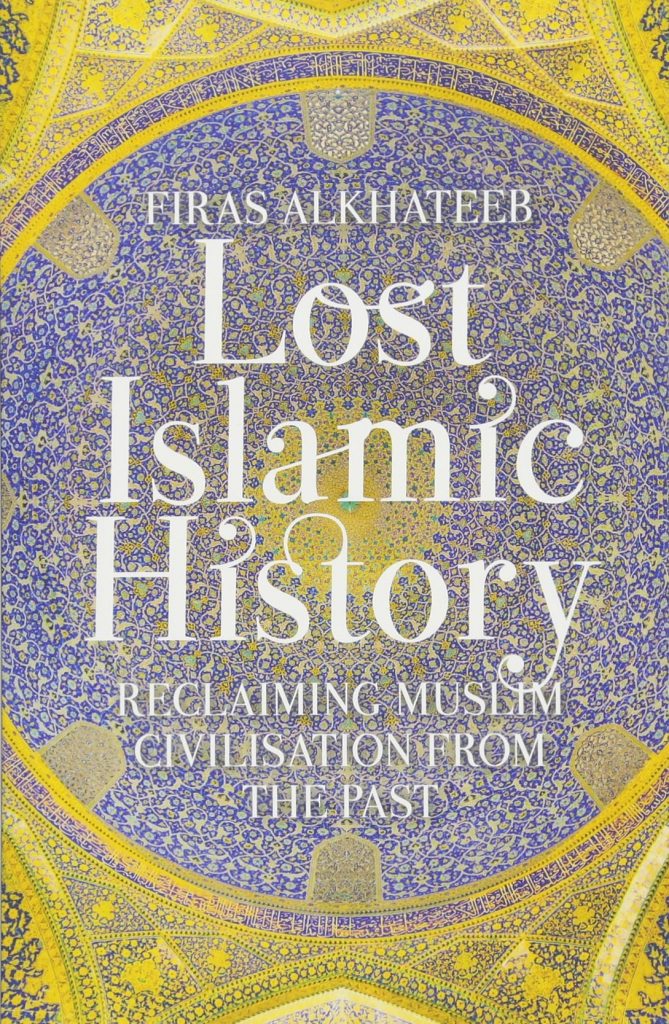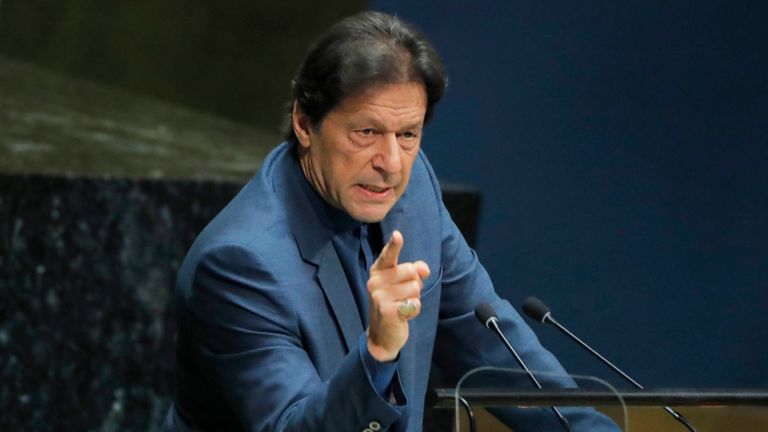How Imran Khan Is Altering Pakistan: A healthy life has been affected due to the onset of an epidemic like Coronavirus in Pakistan and the nationwide lockdown since the last week of March, and a large number of people are hardly worried about how to pass the time.
It is in this context that Pakistani Prime Minister Imran Khan and other leaders of his government are being asked to look at the historical dramas made in Turkey with the help of introducing people to the history of their ancestors and Muslims and the government of Pakistan and the TV channels are also promoting this very well.
Perhaps for the same purpose and for those who are fed up with watching TV or are not fond of TV, then a few days ago Pakistan Prime Minister Imran Khan tweeted, “A wonderful selection for our youth to read during the lockdown season.”
“This book is a very beautiful but economic combination of the historical events that gave Islamic culture the shape of the greatest civilization of its time and weaves the events that led to its end.”
After Imraan Khan’s tweet, a large number of his followers said that they are interested in reading this book. Even Dr. Arsalan Khalid, who stared at digital affairs for the Prime Minister, tweeted the link to download the book so that those who want to read, it should download the book for free.
How Imran Khan Is Altering Pakistan: Pakistani PM Imran Khan Wants Youth To Read About Islamic Civilization

When our sources asked Doctor Arsalan if he had read this book himself, he told us that he would start it. But he is downloading the book in free like this a violation of the laws of piracy? On this question, Dr. Arsalan said that he is in touch with the author.
What is in the book?
When our sources read this book of fewer than 200 pages, one thing that was clearly seen was that despite being brief, it covers the history of 1400 years of Islam.
It mentions the beginnings of Islam, its golden period, the height of various princely states and emperors, and the end of them. Also, it mentions famous Islamic scholars and researchers such as Ibn Khaldun and Ibn Sina.
The book has been written in plain language, and it has also given information about some historical events in the margins from place to place, which is different from the central narrative style of the book.
But the other thing that emerges very clearly after reading this book is that it is an introductory, easy-to-understand book based on a particular narrative style that gives only the top information and The actual cause of the incidents does not mention the background and its details.
Another major flaw of this book was that it does not have many details about the reference book, and there is a list in two to three pages, which is not enough to get more information.
Various periods of Islamic history and the ‘golden age.’
This book has been written according to the historical order, which begins with the arrival of Islam in the Arab-like appearance of the island and then the Prophet of Islam, followed by the era of the four Caliphs.
Most of the book, ie, three quarters, is based on the three significant sultanates of Muslims, including the Umayyad Sultanate, the Abbasi Sultanate, and the Osmania Sultanate.
Writing about these three sultanates, Faras al-Khatib stated that the reason for his success was to implement the Islamic Sharia strictly and follow the Prophet’s education. The distance from it is the reason for his end.
After reading of the Mu’awiya Sultanate and the subsequent establishment of the Umayyad Sultanate and other chapters after the four Caliphate eras, one point clearly shows that history has been written in this book giving priority to Sunni thought.
Some places, such as at the beginning of the ninth chapter, are written with a negative perception about the princely states of Shia Muslims and their military era and have been included with Mongolian and Christian battles such as their (Sunni) Muslims. The Sultanate has ended.
Faras al-Khatib, a high school teacher in the United States, has said that his book aims to introduce non-Muslims.
Young Muslims to history with a Muslim background, and if seen this way, The book is worthwhile because, in the light of Western research (also called ‘Orientalism’) done for Eastern culture, there is a less fair discussion about Islam.
History professor Steve Timari discusses the book of Faras al-Khatib, composing that the current situation is a period of history in which Islamophobia is present in Europe in a big way, so if a book was written by a Muslim writer Perhaps the need of the hour is to narrate the history of Islam, especially for non-Muslims who speak and understand the English language.
In the same context, researcher and author Tamim Ansari, in his book, ‘A History of the World through Islamic Eyes’, has analyzed that it is wrong to look at Islamic history from the Western point of view and it should not be considered as the last word.
But this book of Faras al-Khatib shows that it promotes critical reviews without a famous (Sunni) idea that may be accepted even among non-Muslims but is it right for readers of Pakistan The
On the other hand, what has been written about reaching and ending the height of this Muslim Sultanate is written in its own ‘Orientalist’ style in which the earlier phase is always presented positively.
In this quotation, when our sources spoke to Sher Ali Tarin, Associate Professor of Religious Education at Franklin & Marshall College, USA, and recently the author of the book on Prophet-e-Islam, he asked what the scale of growth and decline was. And who will determine them?
‘It is not right to call political sultanate and lack of governance a social decline.’
‘On the one hand, there was modern colonialism in the 18th, and 19th centuries in the history of the subcontinent, on the other hand, there was a tremendous development in our scientific tradition.
So the question is, what will be the definition of decadence, and will political power alone be the scale of development?
If you see Professor Steve Timari’s discussion, he says that in this era of Islamophobia, this book is excellent to understand Islam, and it should be used.
But at the same time, it has to be kept in mind that this book presents the history of Islam very briefly and with a unique view, which is probably not enough for Pakistani readers to understand the 1400 years of the complicated history of Islam deeply.
Table of Contents







Add Comment